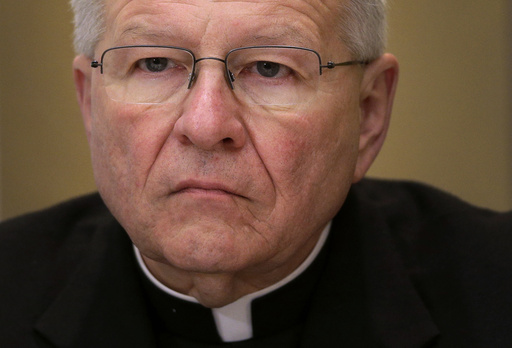NEW ORLEANS — In a surprising twist during the Catholic Church’s efforts to publish a list of priests accused of sexual misconduct, New Orleans church officials sought assistance from the New Orleans Saints, the city’s NFL team. This collaboration turned into a comprehensive public relations strategy, as revealed through the release of numerous internal emails.
These emails provide evidence that Saints executives were more involved in managing the church’s public image amid the crisis than had been previously disclosed. The effort was notably influenced by the team’s Catholic owner, a known associate of the city’s troubled archbishop, illustrating the deep connections between the organization and the church hierarchy.
Key insights from the emails reveal extensive cooperation between the Saints and church leaders. Notably, a Saints spokesperson informed team executives about a significant call with the district attorney shortly before the Archdiocese of New Orleans publicized its list of the accused. This communication reportedly helped the church adjust the list, potentially removing certain names before it was made public.
Additionally, team representatives were given early access to the list, which was carefully curated but potentially underestimated the number of individuals involved, ultimately leading to civil lawsuits against the church and drawing scrutiny from law enforcement agencies. The president of the Saints, Dennis Lauscha, proactively crafted a list of questions for Archbishop Gregory Aymond to prepare for public inquiries. Meanwhile, the team’s spokesperson provided ongoing updates regarding media interactions, indicating a high level of involvement in the communication process.
As the controversy regarding clerical abuse intensified, Saints communications chief Greg Bensel initiated a broad public relations campaign. He utilized his industry connections, prepared strategic talking points, and sought favors, all designed to navigate the church through a tumultuous period. Bensel’s efforts were supported by the team, which allowed him to manage these initiatives even while attending Saints games during a successful 2018 season.
Despite the revelations, the Saints defended their actions and communicated their disapproval of how the media has depicted their involvement. They criticized the use of leaked emails, claiming that their intentions had been misinterpreted. The organization voiced their previous commitment to urging transparency from the church, even while seeking to keep internal communications private.
In response to public outrage following these revelations, the Saints asserted that no team members had engaged in manipulating the names listed in the church’s report on clergy abuse. They emphasized that the abuse and misconduct within the Archdiocese was an appalling reality that they did not condone or attempt to conceal.
The findings from these emails have sparked considerable anger within the New Orleans community. Local leaders expressed outrage at the perceived lengths to which the Saints went in order to shield those guilty of heinous acts. State Representative Mandie Landry articulated her disgust, questioning why the organization chose to protect those who committed such severe crimes against children.
Survivors of clerical abuse, like Kevin Bourgeois, voiced feelings of betrayal, amplifying suspicions about what additional information might be hidden from the public. Such sentiments reveal the emotional and psychological toll on victims, further fueling public demand for accountability and transparency from both the church and the Saints.



